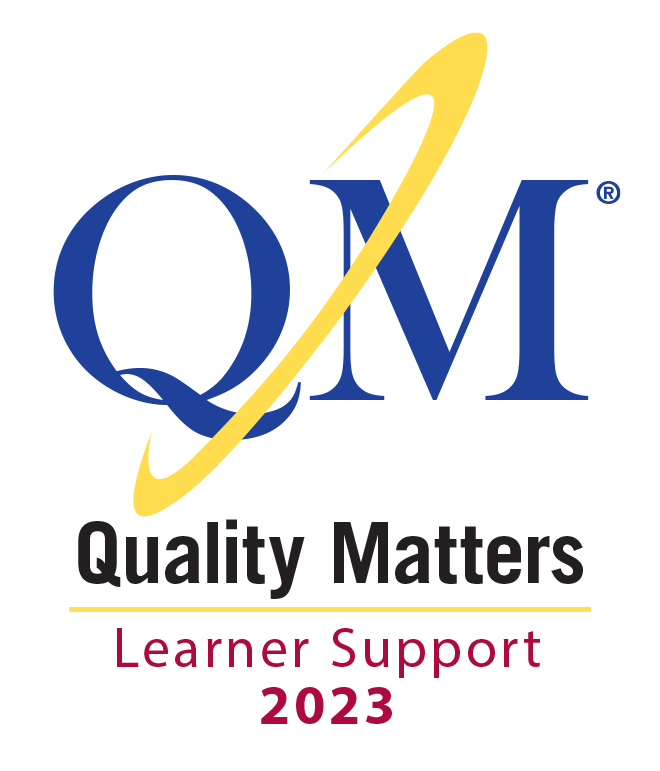Questions? Request Information
Protect and Improve Community Health
Expand your opportunities and enhance your academic credentials in the rapidly growing health care industry with your online Master of Public Health (MPH) degree from the University of Arizona Global Campus (UAGC). Unlike individual care doctors, becoming a public health professional prepares you for bettering the health of large populations, as you can create various programs, systems, and policies that will benefit their health needs.
Whether you are a current or aspiring public health professional, this MPH degree provides you with a flexible online education that will build upon previous knowledge and work experience to improve the health of the communities where you live and work.
With a Master of Public Health from UAGC, you will be able to:
- Design and conduct assessments that integrate the concepts, methods, and tools of public health data collection, analysis, interpretation, and evidence-based reasoning to determine the health status and/or health needs of a diverse population
- Develop effective communication skills and the ability to interact with both diverse individuals and communities utilizing public health education, community empowerment, and information dissemination
- Integrate public health theories, models, and concepts across a broad range of disciplines (social, scientific, behavioral, etc.) into public health research and practice to produce or impact an intended public health outcome
- Apply quantitative and qualitative research findings found in medical, public health, and social science journals to the identification and pursuit of opportunities for promoting health equity and preventing disease across the lifespan, and for enhancing public health preparedness
- Evaluate how the biological, environmental, socioeconomic, behavioral, and cultural determinants of health influence the global and societal burden of disease and contribute to health disparities and inequities
- Apply systems thinking concepts to effectively implement and manage public health interventions as members of interdisciplinary teams
- Evaluate how the legal, ethical, economic, and regulatory dimensions of health care and public health systems influence public health policies
Military Students $350.00/credit
MPH Degree Courses $600.00/credit
Technology Fee** $145.00/course
Books and Other Class Materials** $155.00/average per course
Graduation Fee $150.00
Total Program Cost See UAGC Catalog¹
¹Keep in mind that this figure doesn’t factor in any potential discounts, partner benefits, or impact of accepted transfer credits, if eligible.

UAGC offers enrolled students access to ScholarshipUniverse, a platform that tailors external scholarship opportunities to your unique situation, making it easier to find and apply for scholarships.
UAGC is proud to provide reduced tuition rates for our academic and corporate partners, helping community college transfer students and corporate employees earn their degrees at a lower cost.


MPH Degree Curriculum Overview
Through your online MPH degree coursework, you will gain an understanding of the biological and social determinants of health while exploring key public health issues through epidemiology, biostatistics, research, and health services administration, as well as a practicum where you will gain real-world professional experience.
To be awarded the Master of Public Health degree, all students must complete 42 credit hours with a 3.0 minimum grade point average in all coursework attempted at UAGC.
In order to transfer credits into the Master of Public Health program, the credits to be transferred must come from a school or program accredited by the Council on Education for Public Health (CEPH).
Practicum Requirements
In addition to completing all required courses in your degree program, you will be required to complete a practicum consisting of 90 contact hours with an approved facility. As practical knowledge and skills are essential to a successful career in public health, a planned, supervised, and evaluated practicum is an essential component of a public health professional degree program. The goal of the practicum is to provide an opportunity for you to synthesize, integrate, and apply practical skills, knowledge, and training learned through courses, to gain professional experience in a public health work environment, and to work on public health practice projects that are of particular interest to you.
Prior to beginning a supervised practicum and/or employment in most health care facilities, you may need to provide or successfully complete:
- Background checks
- Toxicology screening
- Blood-borne pathogen training
- Liability coverage
- HIPAA training
- Proof of current immunizations (required of the state) including a two-step TB test (within a year of clinical practicum), MMR or titers, Tdap (10 yr. booster), Varicella, Hepatitis B immunizations or titers, Influenza or record of decline, and/or health clearance from a physician.
Potential locations for your practicum include health care offices, public health offices, community health centers, state health offices, and more. If the student chooses their previous or current employer to host their practicum, it must be with a different department and supervisor.
Students can only complete their practicum in states where this program is available. All students enrolling in a degree program with a practicum requirement are expected to complete the practicum in the United States. If students anticipate that they will not be able to complete their practicum in the United States all exceptions must be approved prior to admission into the program.
Students who reside and/or work outside the United States may be ineligible to complete practicum hours at a facility abroad; requirements and restrictions vary by country. Students must notify the Program Chair prior to enrolling in the program to discuss a potential practicum location and obtain Program Chair permission to enroll.
Criminal Convictions & Criminal Background Check Requirements
Applicants to the Master of Public Health program are required to pay for, complete, and successfully clear a Criminal Background Check (CBC) prior to enrollment into the program and a second CBC prior to final approval of practicum site placement. Students will work directly with Sterling Infosystems, Inc., and the approximate cost of each CBC will be $24.00. Applicants are advised that health care organizations (hospitals, home health agencies, clinics, and other types of health agencies) may require a background check for any student completing a practicum as well as for future employment.
If you can provide evidence of substantial prior public health experience relevant to program-specific competencies, you may qualify to reduce your total number of required practicum hours by up to 30 hours.
In general, this substantiation would require at least three years of full-time employment in a position or positions related to public health, a demonstration of public health competencies obtained by your employment, and a written statement expressing how your future career endeavors will not be impacted by reducing your Practicum hours. If you wish to apply for Practicum Equivalent Experience, you must submit a Student Petition to Waive Practicum Hours form by your third course. This time frame allows you to plan a full Practicum, should your prior experience not be deemed sufficient.
This program is not designed to meet the state educational requirements for a specific professional license or certification in any state. Students seeking licensure or certification in a particular profession shall carefully research the requirements prior to enrollment and regularly review the requirements as they are subject to change. Requirements vary by state. The University of Arizona Global Campus does not guarantee that any professional organization will accept a graduate’s application to sit for any exam for the purpose of professional certification. Further, a criminal record may prevent an applicant from obtaining licensure, certification, or employment in their field of study.
The Master of Public Health program is not accredited by the Council on Education for Public Health (CEPH). CEPH is an independent accrediting organization whose mission is to serve the public interest by establishing and enforcing quality Accreditation Standards for Public Health programs.
The Online Teaching Support Certification recognizes programs that require all online faculty to undergo training in best practices for online course delivery, provide faculty with ongoing pedagogical support, encourage faculty professional development to increase their knowledge and skill in online teaching, emphasize instructor availability and feedback to learners, and collect and use feedback from learners to improve online teaching. Learn More

The Online Learner Support Certification recognizes programs that provide all the critical student and academic services needed for learner success and use learner feedback to continuously improve those services.

What Can I Do with a Master of Public Health?
Some of the career opportunities you might choose to pursue with a Master of Public Health include:
- Health Education Specialist
- Community Health Workers
- Medical and Health Services Manager
- Epidemiologist
- Occupational Health and Safety Specialist
- Environmental Health Specialist
- Social and Community Service Managers
The MPH degree program will prepare you to create, plan, administer, and evaluate public health programs in diverse settings such as research institutions, health care facilities, community organizations, schools, and governmental agencies.
Gain insights into the public health job market by reviewing the Bureau of Labor Statistics market outlook report.
I looked at a lot of different institutions; however, the friendliness of the staff and knowledgeable advisors really steered me in choosing UAGC.
Master of Public Health FAQs
-
Obtaining an MPH degree from UAGC can be highly rewarding. It equips you with the knowledge and skills to address complex health issues, influence health policies, and implement effective health programs. The demand for public health professionals has been amplified by global health challenges, highlighting the importance of expertise in this field.
-
While both degrees focus on health, they serve different purposes. An MPH focuses on population health through research and policy, while an MHA centers on managing health care organizations. An MPH is for those interested in public health advocacy, and an MHA is for those interested in health care administration.
Choosing between the two depends on whether you're more interested in public health advocacy and research or the administrative and operational aspects of health care services.
-
Through your online MPH degree coursework, you will gain an understanding of the biological and social determinants of health while exploring key public health issues through epidemiology, biostatistics, research, and health services administration, as well as a practicum where you will gain real-world professional experience.
See What Else UAGC Has to Offer
Questions? Request More Information
To access this rate using the Liberty Grant, only eligible undergraduate active duty service members, members of the National Guard, Reservists, spouses of active duty, members of the National Guard and Reservists, Department of Defense employees using Tuition Assistance (TA), and civilian employees of the United States Coast Guard (only if utilizing Military Tuition Assistance) will qualify.
**
The Technology Fee covers access to University systems such as the online classroom, the Student Portal, and other academic resources. The Technology Fee and the Course Digital Materials (CDM) Fee are fully refundable if a student does not attend beyond Day 3 of a course (Week 3 if covered under the University of Arizona Global Campus Promise Refund Schedule). After this time, the fee becomes non-refundable. Students are charged the Technology Fee for repeated coursework. Students are not charged the CDM fee for repeated coursework if previously charged.
†
The transferability of credits is subject to the University of Arizona Global Campus transfer credit policies and requires the submission of official transcripts. The official transcripts will be evaluated by the Registrar’s Office to determine the credits that will officially apply toward a UAGC degree program. Credits must be earned at the same degree level in order to be applied. Additional restrictions may apply. See the UAGC Academic Catalog for full undergraduate and graduate transfer policies.





